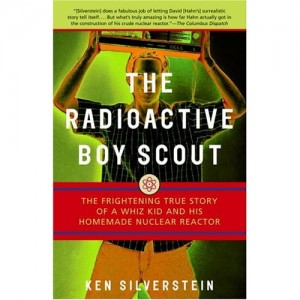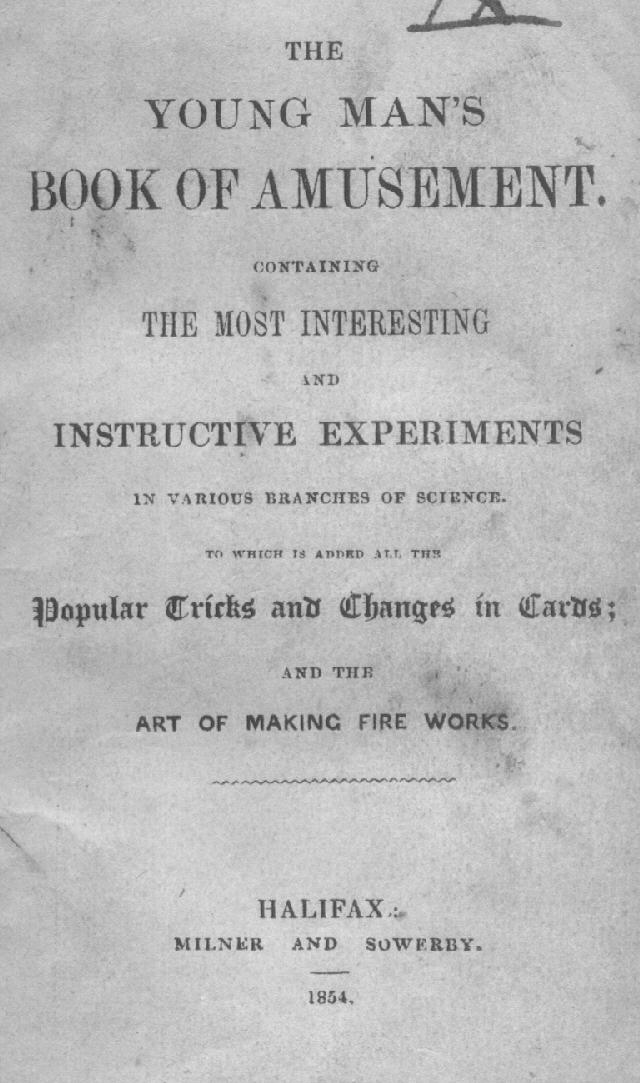I’m not the first to ask why science has become less popular with school children and young people. It’s a fact, at least in the UK and the USA, that fewer students are selecting science subjects at school or making a college or professional career out of science.
While there are doubtless many complex reasons behind the decline, some of today’s thinkers put at least part of the blame on the reduction in first hand experience and active personal experimentation in science that young people engage in.
And could something as apparently innocent as the emasculation of the home chemistry set, or the retreat by schools from the more spectacular classroom science demonstrations, be a contributing cause?
While I’ve been musing over my own formative influences, which I put down to: inherent curiosity, parental support, inspiring teachers, a home culture of learning and DIY (do-it-yourself), and relatively unhindered experimentation; my latest reading is a warning of what can happen when home grown science goes too far.
David Hahn was an adolescent Boy Scout from Michigan when he built an operational model nuclear reactor in his parents’ garden shed. His improbable but true story is told by Ken Silverstein in The Radioactive Boyscout: The True Story of a Boy Who Built a Nuclear Reactor in His Shed.
 Silverstein describes Hahn’s obsession with nuclear power and radioactivity, culminating in his own nuclear pile. It’s a frightening and fascinating study in single-minded ingenuity; the ultimate expression of ‘string and elastic bands’ resourcefulness. But it’s also a sad tale of misguided talent and lost opportunity, with Hahn’s informal career in science never blossoming beyond the confines of his backyard. I’ve just finished this book from 2004 – another volume from my latest ‘3 for £5’ trawl – and can heartily recommend it. It’s a good adult read, plus you won’t find a more mischievous gift for any young person with a maturing interest in home science experiments.
Silverstein describes Hahn’s obsession with nuclear power and radioactivity, culminating in his own nuclear pile. It’s a frightening and fascinating study in single-minded ingenuity; the ultimate expression of ‘string and elastic bands’ resourcefulness. But it’s also a sad tale of misguided talent and lost opportunity, with Hahn’s informal career in science never blossoming beyond the confines of his backyard. I’ve just finished this book from 2004 – another volume from my latest ‘3 for £5’ trawl – and can heartily recommend it. It’s a good adult read, plus you won’t find a more mischievous gift for any young person with a maturing interest in home science experiments.
Hahn’s own inspiration was the doubly infamous Golden Book of Chemistry Experiments, a product of 1950s/60s US techno-optimism that was subsequently banned from most US libraries. Certainly, some of the children’s experiments described within its colourful covers are way beyond anything that today we would consider safe – for the child or the publisher.
There is of course nothing new under the sun, and, despite the recent plethora of mimic Victoriana ‘thing-to-do’ books, titled ‘The Dangerous Books for Boys, Girls,…Whatever’, nothing compares with the original bane of the enlightened Victorian parent – ‘The Young Man’s Book Of Amusement‘. Packed with all sorts of nonsense, ranging from
the harmless to the downright suicidal, my favourite wheeze from this 1850’s bible of curiosity is the Artificial Volcano. The experimental procedure, which results in a runaway exothermic reaction of iron filings and sulphur, specifies minimum quantities of both reactants such that, in the spirit of all good compost heap construction, a critical and sustaining thermal mass is achieved – in this case 28lbs of each. The 56lb of damp mixture is buried two feet below the ground, and left to do its stuff. Never having got up the nerve or the resources to try this, on any scale, I can only imagine the combined impact on the senses of vigourous suphur dioxide production, rivers of molten sulphur, showers of burning iron particles, all escaping through an earth bulging under the pressure of a man-made magma chamber. Environmentally friendly – not. Politically correct – not. Fun, thought provoking, and inspiring….? For more excerpts from this cheery manual visit Lateralscience (but don’t fall for the apochryphal stories surrounding the text – which is real).
I’m not endorsing the building of volcanoes or nuclear piles, in our back gardens or anywhere else, but we should consider what has happened over the last thirty or forty years with regard to our freedoms and restrictions in the home-science department. Are we to be trusted with only baking soda and citric acid? – apparently so.
I’ll wind up with a taste of how some of the ‘today’s thinkers’ I referred to earlier feel about the subject of scientific inspiration and freedom for self-experimentation. “Hands-on experience and experiments” was one of the ten categories highlighted by respondents to a 2006 study by the Spiked team who, working with Pfizer, asked some well-known scientists/thinkers (including Simon Singh whom I had the unexpected pleasure of meeting recently) – ‘”What inspired you to take up science?’” Many respondents emphasised the importance during their formative years of being able to do their own independent testing, experimentation, and indeed – risk taking. Here is the complete summary of responses.
